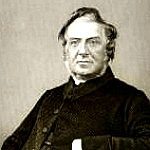Quotes about Selfishness
Selfishness is when we pursue gain at the expense of others. But God doesn’t have a limited number of treasures to distribute. When you store up treasures for yourself in heaven, it doesn’t reduce the treasures available to others. In fact, it is by serving God and others that we store up heavenly treasures. Everyone gains; no one loses.
The Treasure Principle, 2002, p. 15-16, Used by Permission from Eternal Perspective Ministries, www.epm.org. Get this book!
God doesn’t look at just what we give. He also looks at what we keep.
The Treasure Principle, 2002, p. 63, Used by Permission from Eternal Perspective Ministries, www.epm.org. Get this book!
If you allow physical selfishness, mental carelessness, moral insensitivity, or spiritual weakness, everyone in contact with you will suffer.
Selfishness is the controlling force of sinful living. It is this motive which pulsates through the natural mind, emotions and will – self-pleasing, self-serving, living for self.
The Shadow of the Cross – Studies in Self-Denial, 1981, p. 11, by permission Banner of Truth, Carlisle, PA.
The roots of this depravity are quite evident in very young children. Babies may not show all the ugly outworkings of sin, but their selfishness is quite apparent. Any time of the day or night they will howl when their little egos are annoyed. Brothers and sisters have noticed how small children are self-seeking. When treats are being given, a “me first” attitude prevails. Small children want the chief attention. It is all self-serving. This all-demanding self-will matures into that of a grasping adult. Though clever devices will make the selfishness polite and genteel, all of life outside of Christ is for one thing – self!… Self is the idol to which all men naturally bow.
The Shadow of the Cross – Studies in Self-Denial, 1981, p. 12, by permission Banner of Truth, Carlisle, PA.
Anything that springs from self, however small it may be, is sin. Self-energy or self-complacency in service is sin. Self-pity in trials or difficulties, self-seeking in business or Christian work, self-indulgence in one’s spare time, sensitiveness, touchiness, resentment and self-defense when we are hurt or injured by others, self-consciousness, reserve, worry, fear, all spring from self and all are sin.
The Calvary Road, Christian Literature Crusade, 1950, p. 29. P.O. Box 1449, Fort Washington, PA 19034-8449. Used by Permission.
It is always self who gets irritable and envious and resentful and critical and worried. It is self who is hard and unyielding in its attitudes to others. It is self who is shy and self-conscious and reserved.
The Calvary Road, Christian Literature Crusade, 1950, p. 22. P.O. Box 1449, Fort Washington, PA 19034-8449. Used by Permission.
Selfishness is the cause of all sin – the opposite of all holiness and virtue… Selfishness is contrary to the habitual temper of our Lord Jesus Christ. “For even Christ did not please Himself” (Mk. 10:45).
Yet I dare say that, for Americans, greed is to sin what North Dakota is to U.S. states – it’s easy to forget that it exists. We confess lust, anger, maybe pride, maybe self-righteousness. But greed? It’s whitewashed. It’s camouflaged. We use words like “lifestyle” or “ambition” or “the American dream.”
Greed is idolatry. Greed is worshiping, trusting, loving, and obeying worldly treasures rather than God. Greed is breaking the first two commandments. Greed is placing your faith in money rather than in Jesus (Matt. 6:24).
How do we flee greed? We flee, for starters, by recognizing that the idolatry of greed is rooted in a diminished view of God. That’s why we love and worship the idols of gold instead… We flee greed by looking to the liberally giving God of the Gospel. We have received all we need in Christ! To the extent then that we find our joy and rest in this God of the Gospel we are able to give liberally with love (see 1 Cor. 13:3). Just as greed defines pagans, increasing measures of liberality defines Christians (see Matt. 25:31-46).
If our goods are not available to the community, they are stolen goods.
Because modern man is inclined to view himself as merely a higher form of animal – with no divine origin, purpose, or accountability – he is even more disposed to see other people simply as things, to be used for his own pleasure and advantage.
The person who refuses to compromise under any and every circumstance is obstinate, unreasonable, and selfish. That sort of strong-willed inflexibility is sinful and has been the ruin of many relationships and organizations. But when it comes to matters of principle – moral and ethical foundations, biblical absolutes, the axioms of God’s Word, God’s clear commands, and the truthfulness of God Himself- it is never right to compromise.
We have within us a self that has its poison from Satan – from hell – and yet we cherish and nourish it. What do we not do to please self and nourish self – and we make the devil within us strong… Look at your own life. What are the works of hell? They are chiefly these three: self-will, self-trust, and self-exaltation.
I would like to buy three dollars worth of God, please. Not enough to explode my soul or disturb my sleep, but just enough of Him to equal a cup of warm milk or a snooze in the sunshine. I don’t want enough of Him to make me love a black man or pick beets with a migrant. I want ecstasy, not transformation. I want the warmth of the womb, not a new birth. I want a pound of the Eternal in a paper sack, please. I would like to buy three dollars worth of God, please (Wilbur Reese).
The essence of sin is selfishness (Tony Hart).
Selfishness seeks its own private happiness at the expense of others. Love seeks its happiness in the happiness of the beloved. It will even suffer and die for the beloved in order that its joy might be full in the life and purity of the beloved.
Desiring God, 1996, p. 176, Used by Permission, www.desiringGod.org. Get this book!
Love is the pursuit of our joy in the holy joy of the beloved. There is no way to exclude self-interest from love, for self-interest is not the same as selfishness. Selfishness seeks its own private happiness at the expense of others. Love seeks its happiness in the happiness of the beloved. It will even suffer and die for the beloved in order that its joy might be full in the life and purity of the beloved.
The Dangerous Duty of Delight, Copyright 2001, p. 63, John Piper. Used by permission. www.DesiringGod.org.
Out of the freedom from worry that God’s generosity provides comes an impulse toward simplicity rather than accumulation.
Covetous greed will make you angry and manipulative… Complacent, satisfied greed makes you care less about what really matters; because it lulls you to sleep… Anxious greed [will make you worry].
Seeing With New Eyes, P&R Publishers, 2003, p.114. Get this book!
I can tell you without any fear of contradiction or oversimplification that the root cause of all marriage conflicts is selfishness. I can say that because there’s probably no better practical synonym for the concept of sin than selfishness. Sin (i.e., selfishness) is at the heart of all marriage problems.
Let this be thy whole endeavor, this thy prayer, this thy desire – that thou may be stripped of all selfishness, and with entire simplicity follow Jesus only.
The DNA of sin is selfishness. Sin inserts me into the middle of my universe; the one place reserved for God and God alone. Sin reduces my field of concern down to my wants, my needs, and my feelings. Sin really does make it all about me.
War Zones by Paul David Tripp taken from Dangerous Calling by Paul David Tripp, copyright 2012, Crossway Books, a division of Good News Publishers, Wheaton Illinois 60187, www.crosswaybooks.org, p. 98.
The biggest protection against the kingdom of self is not a set of self-reformative defensive strategies. It’s a heart that’s so blown away by the right-here, right-now glories of the grace of Jesus Christ that you’re not easily seduced by the lesser temporary glories of that claustrophobic kingdom of one, the kingdom of self.
War Zones by Paul David Tripp taken from Dangerous Calling by Paul David Tripp, copyright 2012, Crossway Books, a division of Good News Publishers, Wheaton Illinois 60187, www.crosswaybooks.org, p. 102.
Our self-abnegation is thus not for our own sake but for the sake of others. And thus it is not to mere self-denial that Christ calls us but specifically to self-sacrifice, not to unselfing ourselves but to unselfishing ourselves. Self-denial for its own sake is in its very nature ascetic, monkish. It concentrates our whole attention on self—self-knowledge, self-control – and can therefore eventuate in nothing other than the very apotheosis of selfishness. At best it succeeds only in subjecting the outer self to the inner self or the lower self to the higher self, and only the more surely falls into the slough of self-seeking, that it partially conceals the selfishness of its goal by refining its ideal of self and excluding its grosser and more outward elements. Self-denial, then, drives to the cloister, narrows and contracts the soul, murders within us all innocent desires, dries up all the springs of sympathy, and nurses and coddles our self-importance until we grow so great in our own esteem as to be careless of the trials and sufferings, the joys and aspirations, the strivings and failures and successes of our fellow-men. Self-denial, thus understood, will make us cold, hard, unsympathetic—proud, arrogant, self-esteeming—fanatical, overbearing, cruel. It may make monks and Stoics, it cannot make Christians.
After the fall into sin, people remained image-bearers, but Adam’s disobedience brought fundamental changes to our ability to reflect God’s image. The direction of the human heart became oriented not toward God but toward self. In the garden, man began repeating a mantra that will persist until Jesus returns. Adam said, “I want.” “I want glory for myself rather than giving all glory to God.” “I love my own desire rather than loving God.” This came to be known as covetousness, lust, or idolatry.
When People are Big and God is Small, P&R Publishing, 1997, p. 148. Used by Permission. Get this book!
The love of God can be a profound answer to just about any human struggle, but sometimes we can use it in such a way that it becomes a watered down version of profoundly rich truth. For example, sometimes, because of shortcomings in us rather than Scripture, this answer misses the call to “consider others better than yourselves” (Phil. 2:3), or it ignores personal repentance. Sometimes it still allows us and our needs to be at the center of the world, and God becomes our psychic errand boy given the task of inflating our self-esteem.
When People are Big and God is Small, P&R Publishing, 1997, p. 18. Used by Permission. Get this book!
Self-serving needs are not meant to be satisfied; they are meant to be put to death.
When People are Big and God is Small, P&R Publishing, 1997, p. 162. Used by Permission. Get this book!


















